
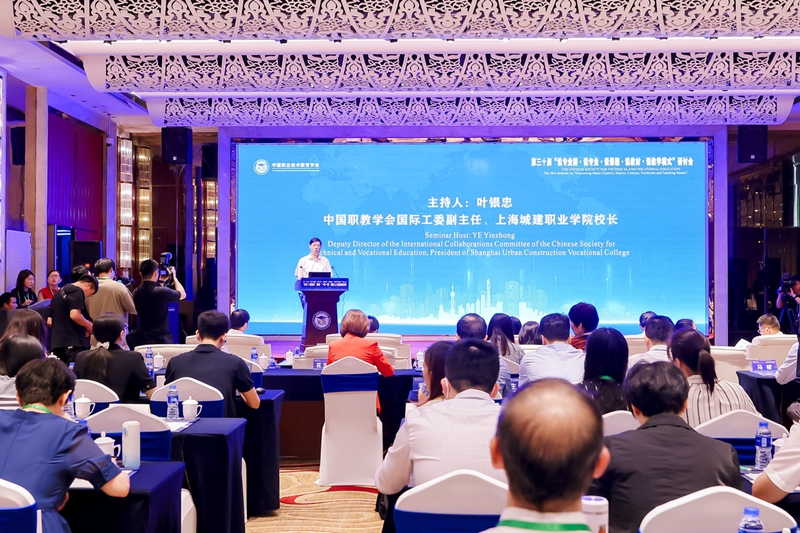
On July 18, the 30th Seminar on "Discussing Major Clusters, Majors, Courses, Textbooks and Teaching Modes" was held by the Chinese Society for Technical and Vocational Education (CSTVE) in Shanghai. Under the theme of Empowerment of "Chinese + New Technologies" to the Cultivation of New Skills for Talents in B&R Countries, the Seminar thoroughly studies and implements the spirit of the 20th CPC National Congress and General Secretary Xi Jinping's important instructions on vocational education, and implements the Opinions on Deepening the Reform of the Construction of Modern Vocational Education System issued by the General Offices of the CPC Central Committee and the State Council. The Seminar also supports China's strategy of opening up education to the outside world, facilitates the construction of the Belt and Road Initiative (BRI) of vocational and technical education services, publicizes the story of Chinese vocational education, disseminates Chinese experience, makes Chinese voices heard, and explores a new international development model of "Chinese + vocational skills" that can be promoted. The Seminar is organized by CSTVE International Collaborations Committee, co-organized by Shanghai International Studies University (SISU), Shanghai Urban Construction Vocational College (SUCC), Shenzhen Polytechnic University, and Beijing Polytechnic, and chaired by Ye Yinzhong, President of SUCC.
Lu Xin, President of CSTVE and former Vice Minister of the Ministry of Education (MOE), Xie Li, Deputy Director of the MOE Department of Vocational and Adult Education, Sun Zhenrong, Member of the CPC Shanghai Education and Health Working Committee and Deputy Director of the Shanghai Municipal Education Commission, Jiang Feng, Vice President of CSTVE, Chairman of the CSTVE International Collaborations Committee, and Secretary of the Party Committee of SISU, Zhao Zhongxiu, President of the University of International Business and Economics, Chu Min, Secretary of the Party Committee of SUCC, Jin Hui, Deputy Director and Secretary-General of the CSTVE International Collaborations Committee and Director of the Office of Academic Affairs of SISU, and relevant officials from CSTVE and Shanghai Municipal Education Commission attended the Seminar on site.
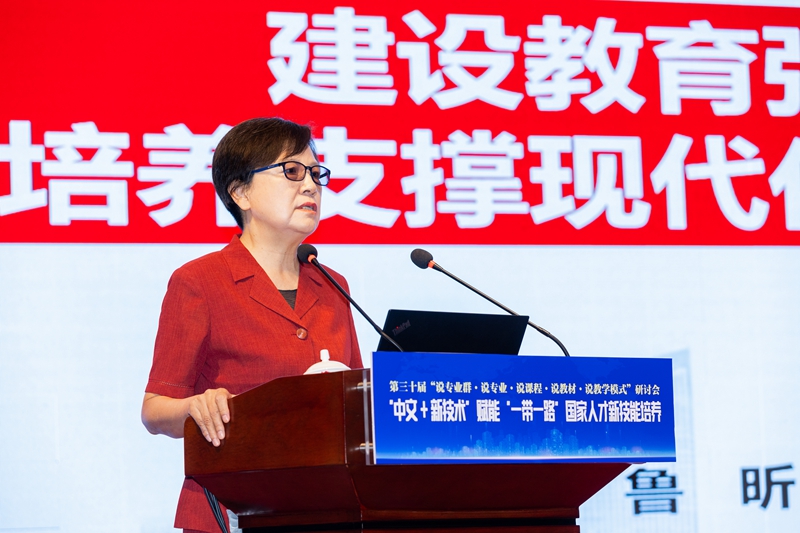
Lu Xin made a keynote speech entitled "Building an Education Powerhouse: Cultivating Talent to Support Modernization". She elaborated on the mission, tasks, paths and measures of modern vocational education in the construction of an education powerhouse. From the four aspects of studying important speeches of General Secretary Xi Jinping, the education powerhouse ideas of MOE, the alignment of digital majors with digital occupations, and the goals and tasks of building a vocational education powerhouse, she said that vocational education is not only an essential part of the national education system and human resource development, but also an important support for accelerating Chinese-style modernization and expanding the national strategic talent team. Under the strategy of building an education powerhouse, vocational education should make structural contributions to cultivating top-notch innovators, engineers and technicians, technical, skilled and digital talent who can take on heavy responsibilities. Guided by the vision of building a community with a shared future for mankind, through the empowerment of "Chinese + new technologies" to the cultivation of new skills for talents in B&R countries, we can pave a new path for international exchanges in vocational education, strengthen the role of vocational education to serve China's high-level opening-up, accelerate the growth of developing countries, and jointly foster new drivers of global development.
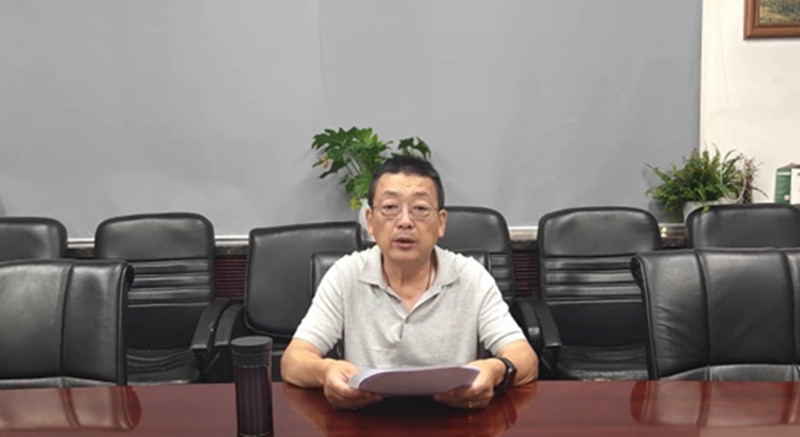
Xie Li stressed in his opening speech that global economic development has entered a new era. Technological innovation and international cooperation have become key drivers for economic prosperity and social progress. Vocational education accelerates the BRI construction, continuously optimizes the mechanism of international cooperation and exchanges, and provides the world with Chinese solutions that can be used for reference and promoted for win-win results. We must firmly grasp the important mission and historical opportunities of vocational education, provide strong talent support for regional economic development, and leverage the advantages of vocational education in international cooperation and development to open up new areas for building a vocational education powerhouse.

Sun Zhenrong stressed that vocational education is facing the best opportunity for development. Under the leadership of President Lu Xin and CSTVE, Shanghai has developed 80 internationally influential professional teaching standards for vocational education, and accumulated rich experience through international exchanges and cooperation, thus establishing a "Shanghai brand" of vocational education. Sun Zhenrong said that vocational education should contribute to the BRI construction. Shanghai vocational colleges, represented by Shanghai Urban Construction Vocational College, have always been committed to meeting the actual needs of countries along the Belt and Road. They provide professional talent training programs, create an important brand name of "Chinese language + vocational skills", and focus on cultivating skilled cross-cultural interdisciplinary young talents who are proficient in Chinese language. The colleges promote high-quality vocational education resources overseas, improve the systems and mechanisms for joint contribution and shared benefits, and contribute China's wisdom and Shanghai's solutions to the development of international education.
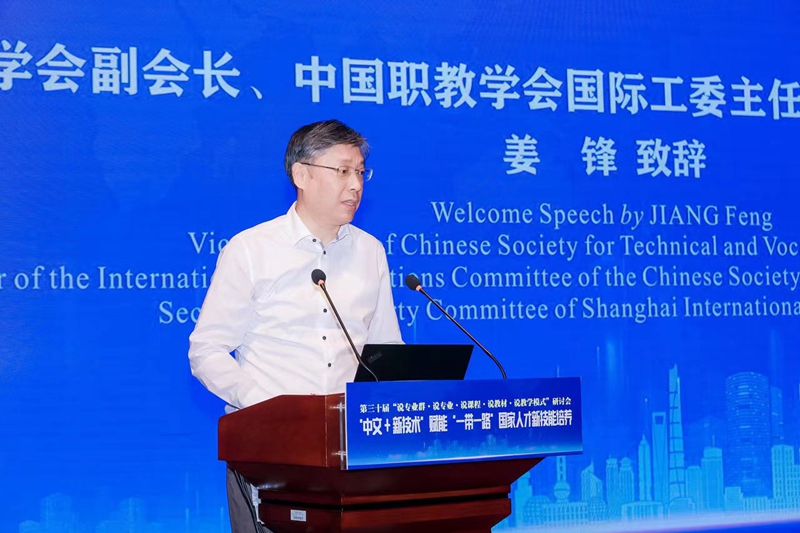
Jiang Feng pointed out that under the leadership of President Lu Xin and the Chinese Society for Technical and Vocational Education, the International Collaborations Committee has vigorously organized member units to explore new fields for vocational education to "go global," and actively helped China's vocational education open up to the outside world. The committee will work hand in hand with vocational colleges to build consensus, understand the mission from the perspective of the task of building China into a leading country in education as required by the times, give full play to the role of Chinese language education, cultivate outstanding international skilled talents who are proficient in Chinese language, make "Chinese language + new technologies" a new calling card for high-level opening-up of China's vocational education, and inject China's strength and wisdom into the development of global vocational education.
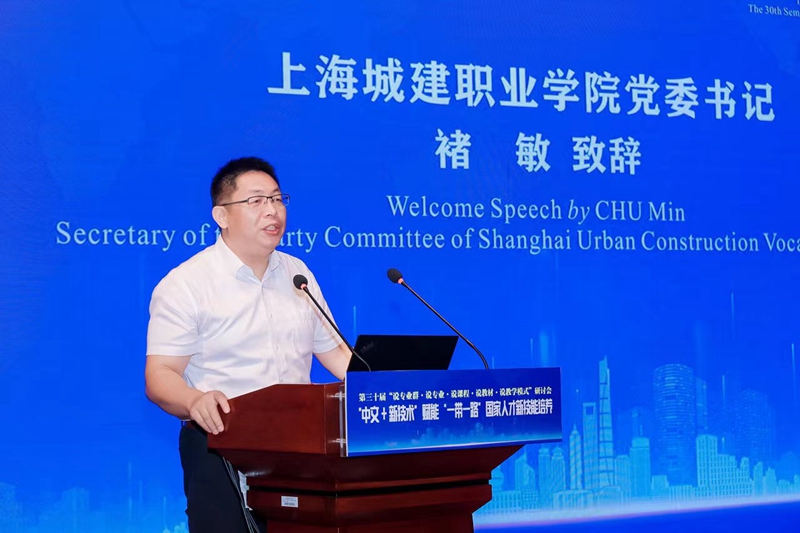
Chu Min introduced in his speech that Shanghai Urban Construction Vocational College has promoted the optimization and upgrading of major settings, and made full use of the new version of major catalogue and major profile to promote the organic integration of professional education and digital technology. The college has made remarkable achievements in talent training, major development, industry-education integration, school-enterprise cooperation, and model worker culture education. In addition, he shared the college's main measures and experience in serving the Belt and Road Initiative and promoting the international development of vocational education.
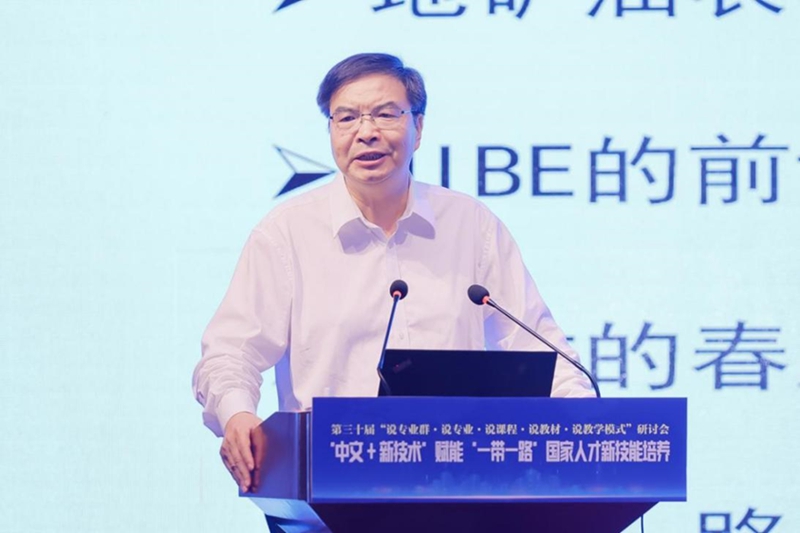
In the expert report session, Professor Zhao Zhongxiu delivered a special report entitled "Education Internationalization under the New Situation: Reference Significance for Vocational Education". The report focuses on three aspects, including the relationship between professional education and universities with industry characteristics, re-examination of talent training objectives, and differentiation of international capabilities. Facing the new situation, goals and tasks of current economic and social development, the report proposes that we need to re-examine the objectives of talent training, be good at arousing students' learning curiosity, shape and cultivate excellent characters, and truly train outstanding talents who are capable of shouldering the mission of national rejuvenation. In addition, the report stresses that technical and vocational education and training (TVET) institutions should actively respond to changes in the times and technology, and adjust and upgrade the majors in a timely manner to meet the actual needs of the industrial and supply chains.

In the session of "Discussing Major Clusters, Majors, Courses, Textbooks and Teaching Modes", three heads of major clusters, six major leaders, five course leaders, three front-line teachers, and another three front-line teachers talked about the topics respectively, and five relevant heads of foreign affairs in vocational colleges shared cases. Teachers from 17 secondary and higher TVET institutions across the country shared 25 excellent teaching cases online and offline, covering 14 majors and major clusters such as automobile assembly and experimental technology, intelligent manufacturing, IoT application technology, refrigeration and air conditioning technology, architectural engineering technology, food quality and safety, and business Chinese. Xu Tao, Secretary of the Party Committee of Shanghai Art & Design Academy, Zhang Baozhong, Deputy Secretary of the Party Committee and President of Zhejiang Business College, Zhao Jian, Deputy Secretary of the Party Committee and President of Shanghai Technical Institute of Electronics & Information, Liu Shuyun, Vice President of Shanghai Zhongqiao Vocational and Technical University, and other guests made in-depth comments on the cases.
More than 170 people from 36 secondary and higher vocational colleges and vocational undergraduate institutions in Shanghai, Beijing, Shenzhen, Tianjin, Shandong, Hubei, Guangdong and other places attended the seminar offline, while 32,500 people from more than 700 secondary and higher vocational colleges and vocational undergraduate institutions across China participated online. Experts and scholars gathered together to focus on the key issues facing the Belt and Road cooperation and China's vocational education "going global". Attendees conducted in-depth discussions on the topic of "Chinese language + new technologies" empowering the cultivation of new skills for talents in the Belt and Road countries, and put forward a series of feasible suggestions and practice solutions. The rich and diverse deliverables of the seminar embody the consensus of the participants, and form a synergy in practice. The seminar has not only promoted academic exchanges and cooperation in the field of vocational education, but also boosted the development of international skilled talent cultivation in countries along the Belt and Road. The collision of ideas and the crystallization of the wisdom of participants have provided new concepts and impetus for the high-quality development of vocational education, laid a solid foundation for future cooperation, and injected China's strength and wisdom into the prosperity and progress of world vocational education.